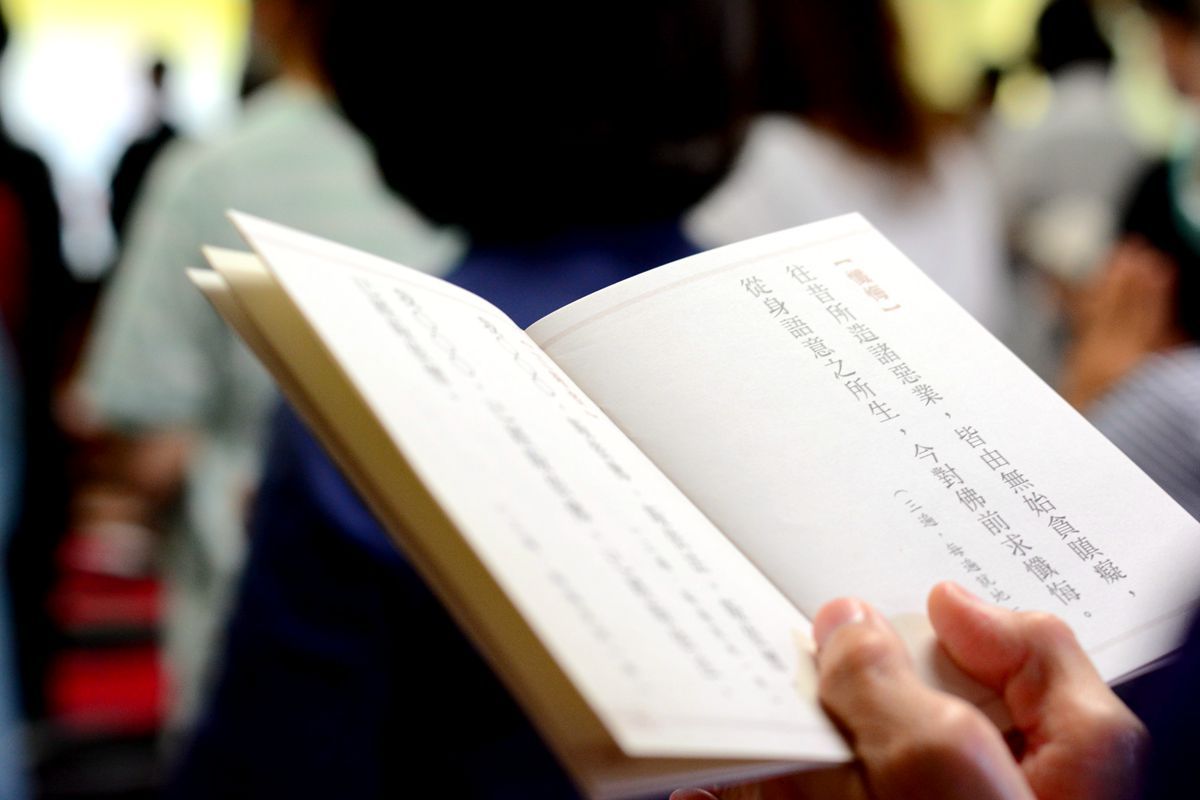Special Topics
Q1: In order to make vows, do we need to follow any sequential steps?
Q&A on making vowsWhat is the difference between Buddhists making vows and ordinary people making wishes? Do you have to fulfill your vows? Is there a certain ritual for making a vow? In order to help you form a clearer picture of the idea, we have collected here some frequently asked questions about making vows. Hopefully, this will allow you to make a profound and lasting great vow on the path of Buddhist practice for attaining Buddhahood, as well as strive to fulfill it.
Q1: In order to make vows, do we need to follow any sequential steps?
Buddhists should vow to attain Buddhahood one day and take the Four Great Vows from the very beginning, when they first commit themselves to Buddhist practice. Many people worry that they won't be sufficiently capable of undertaking such vows. Conversely, they don't know where to start after making a vow, wondering if failing to fulfill it will render it invalid.
Also, it's important not to put too much pressure on yourself regarding making a vow, and don't measure the vow in material and numerical terms. For example, suppose you saw someone donating a million dollars and you decided to donate 10 million, in order to exceed their donation amount. At this point you would have fallen into the myth of numbers or quantities. This will likely render your vow invalid, thereby eventually turning it into an unattainable dream.
 Venerable Guo Kai, Director of Dharma Drum Mountain's Department of Dharma Service, stated that a Buddhist should make vows, since doing so establishes an attitude and direction for our life. Don't be daunted to make a great vow, but make sure you have the starting point and the steps for practicing it. We can also start by making a short-term vow. Master Sheng Yen often encouraged people by saying: "There are steps involved in making vows. Start out small—that is, with a short-term vow. Keeping good intentions, speaking kindly, and doing good deeds are things that everyone can vow to do and are achievable." Therefore, we can start by making a vow to influence the people around us, such as vowing to help the people around us live a healthy and happy life, free from worries and troubles.
Venerable Guo Kai, Director of Dharma Drum Mountain's Department of Dharma Service, stated that a Buddhist should make vows, since doing so establishes an attitude and direction for our life. Don't be daunted to make a great vow, but make sure you have the starting point and the steps for practicing it. We can also start by making a short-term vow. Master Sheng Yen often encouraged people by saying: "There are steps involved in making vows. Start out small—that is, with a short-term vow. Keeping good intentions, speaking kindly, and doing good deeds are things that everyone can vow to do and are achievable." Therefore, we can start by making a vow to influence the people around us, such as vowing to help the people around us live a healthy and happy life, free from worries and troubles.These vows may seem to revolve around our own lives, but any smaller vow can serve as the basis of a bigger vow. We can start by taking care of ourselves and our family in terms of the body and mind. Such is the basis for a bodhisattva practitioner, and can gradually expand to embrace caring for all sentient beings. Through such a sequential, step-by-step practice, we will continue to accumulate and expand our vows. This is the method and mentality for Buddhists to make vows.
Extended Reading:
Vows: the Blueprint for Happiness
Q1: In order to make vows, do we need to follow any sequential steps?
Q2: What are the differences between ordinary people making a wish and Buddhists making a vow?
Q3: What are the Ways to Make a Vow?
Q4: Is it necessary to fulfill a vow after making it?
Q5: Is making vows the same as taking oaths?
Q6: How to avoid making empty vows?
Resource: Issue 330 of Humanity Magazine, Dharma Drum Publishing Corporation
Translation: 可馨
Editing: Keith Brown, Chiacheng Chang (張家誠)
